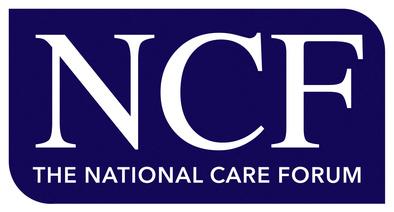National Care Awareness Survey
























This report conveys the results of the National Care Awareness Survey 2022, amongst social care professionals across the UK. This survey was conducted in September/October 2022 by UK Care Week, in collaboration with The Care Workers' Charity, National Care Forum, National Care Association, Care Campaign for the Vulnerable, the Institute of Health and Social Care Management and Sona.



In order to capture a good snapshot of the social care sector on a national scale, we teamed up with industry leading partners and put together a three phase marketing distribution plan.

7/9/22 - 14/9/22
In house A/B tested emails sent, follow up reminder emails sent, press release published, website banners live, LinkedIn group promotion, organic social media promotion.
15/9/22 - 22/9/22
Partners sent press release, newsletter feature assets, email templates, social media templates and graphics/banners to promote to their datasets.
23/9/22 - 10/10/22
1 week and 2 week in house emails and social media alert posts scheduled and website banners updated.
The survey was completed by 602 care professionals and overall responses show that the care industry is listening to the key issues at hand. Respondents felt more supported and satisfied with their roles and plan to stay in the sector longer. However, questions surrounding employee recognition show that many social care professionals still feel that recognition is a major area of concern. Moreover, new issues such as the cost of living crisis, recent changes in policies and regulations have shaken up the industry.


The survey remained completely anonymous, and participants had the option of disclosing their email before submission if they wished to be entered into the prize draw.
Opening questions delved into the demographics of the participants including job role, sector, type of organisation, influence over decisions, size of business, number of vacancies and occupied beds, in order to set the premise of follow up questions.
As shown above, the majority of respondents work in home care and care home roles (making up 41% of respondents). The percentage of Nurses and Doctors are relatively low at 8.4% and 9% respectively, this may have been due to the pressures and time they have available to complete the survey.

The majority of social care businesses are privately funded. This is backed up by the results of this survey as 41.8% of respondents reported to work in the private care sector, compared to only 18% in the public care sector.

Notably, 21% of organisations are both public and private. These could be suppliers.
The 'other' category in the bar chart above consisted of mostly supported living and day care answers.
Number of people in company:
Only 5% of respondents reported that their care business does not typically have any vacancies. This conveys that the wellknown care staffing crisis is still very much prevalent across the UK.

Typical occupied beds:
58.5% of care businesses were sized between 11 100 people.
Typical number of vacancies:
90.2% of care businesses typically had at least one bed that was unoccupied. Moreover, the majority of care businesses only had 25 50% of their beds occupied at any given point.
Care businesses would benefit from working together in such a way that when there is no bed availability in one establishment, they should refer to another.


The chart to the right shows that respondents in Activity Coordinator and CEO/Director positions feel the least supported by the social care system
In contrast, doctors and social workers felt the most supported.

The chart to the left shows that respondents in CEO/Director positions along with both Home Care and Care Home Manager roles are most affected by the cost-of-living crisis.

In contrast, Social Workers along with both Home Care and Care Home Worker roles were the least affected.

How does each care role feel supported by the social care system?
The most prevalent forms of support that respondents felt were necessary were general financial support, help with the cost-of-living crisis and better services for people in care. In a follow up question asking respondents if any other forms of support were needed, the following answers were the most common: Improved communication within companies, agencies to encourage innovation, less bureaucracy and free mental health support.

Section 2 focused on the care association and community questions. This section presented questions from industry leading care partners, namely, the National Care Association, The Care Workers' Charity, National Care Forum, the Institute of Health and Social Care Management and Care Campaign for the Vulnerable, along with our sponsor, Sona. Each organisation provided two questions and the majority of these were open ended to gauge people's thoughts, opinions and feelings.






In collaboration with...

"When 35% of respondents don’t think the public view care workers as skilled professionals, it shows how much more government and businesses need to do to improve the reputation of working in social care. It’s no surprise when care work is described as one of the lowest paid professions. Every job has value, but social care requires a unique set of skills more comparable to working in a hospital than a supermarket.


We are pleased to see that ‘Financial Support’ is recognised as being fundamental to social care reform, second only to improving quality of care. The two are inextricably linked care quality can only improve if providers and commissioners have the funds required to pay for the individualised care we expect in a developed nation like the UK, and if workers are compensated for their hard work and commitment to improving peoples’ lives."
- Rosie Mockett, Policy, Reseach and Projects Officer at The Care Workers' Charity
"It is very worrying to note that only about 38% of respondents felt more than somewhat confident about their financial viability over the coming year. The remaining respondents have varying degrees of concern. This means that with support the sector may still be able to respond to the needs of those who need care and support going forward. A worsening financial settlement could easily tip the balance. The key concerns, unsurprisingly, centre around our workforce. The reality is that without a strong and well supported and rewarded workforce we skate on very thin ice on delivery models. Our failure to respond to the challenges of the workforce will have a direct impact on colleagues in the NHS who will not be able to discharge people into our care. A worrying picture which cannot and must not be ignored."

 Nadra Ahmed OBE, Executive Chairman National
Nadra Ahmed OBE, Executive Chairman National
Questions set out by the National Care Forum asked the following...
Are you planning to stay in the care sector in the next 12months?
What training/skills development do you feel you need?
The majority of participants do plan to stay in the care sector over the next 12 months.
The most common answers to this question revolved around general professional and organised training, medical training and technology & IT skills. Additionally, management skills, financial support, mental health, health & safety and human resource training were all mentioned.
“Numerous reports have highlighted the huge workforce pressures facing social care. Data from Skills for Care reveals that there are now 165,000 vacancies in the sector and, significantly, a decrease of around 50,000 people from the previous year. A recent ADASS survey revealed that 500,000 people in England are waiting for care assessments, reviews and/or care and support to begin. The recent CQC State of Care report describes the health and care system as gridlocked, with workforce pressures at the root of the problems.
While we take some reassurance that the National Care Awareness Survey has found that 73% respondents intend to remain in social care, it is deeply concerning that 9% of those surveyed are planning to leave the sector in the next 12 months, with a further 15% only considering staying if things improve. The sector cannot afford to lose highly skilled workers. The National Care Forum calls on the government to bring forward a fully funded workforce plan with pay progression in line with the NHS, making provision for better terms and conditions, training and career structures.”

 Jones, Director of Policy, National Care Forum
Jones, Director of Policy, National Care Forum
Questions set out by the Care Campaign for the Vulnerable asked the following...

The majority of the respondents believe that safety monitoring should be mandatory in dementia care homes and that there should be a national register for carers and healthcare assistants.

"CCFTV is calling for all UK care homes to adopt camera systems, as well as wanting to see introduced national carers register. That entity creates an opportunity for red flagging as providers have to register staff before they can be permanently confirmed in post.
CCFTV believes a combination of safety monitoring and Care Registers would ensure abusers are caught, then red flagged from ever working in social care again."
-
JayneConnery, Director of Care Campaign For The Vulnerable
Questions set out by the Institute of Health and Social Management asked the following...
Do you support the idea of a nationalised care services, similar to the NHS?
How do we improve representation of people who use care services?
Training programmes to include forums and surveys to provide feedback and improve representation
Give residents influence over care planning and service development
“The calls for a national care service are nothing new, but it is surprising to see the overwhelming support for such a proposal. With a little under 70% in favour, more work must be done to investigate what a national care service could look like, but also to understand what it is about the current social care makeup that must be preserved through the process of nationalisation. The IHSCM holds neither stance but is committed to working with it’s members and the people they support to flesh this idea out further.
More publicity, marketing campaigns and podcasts Financial support
Collaboration with the CQC, Local Authorities and ICS bodies
It's this inclusion of people who use care services we believe is so important. True changes to social care will only come from well thought out and meaningful coproduction. The ideas from the survey about how to improve representation of people using care services are valid ones, but we believe they still rely on a wider sector support. There has to be a unified understanding that the most important people in social care are those who receive and rely on care and support.”
Purnell, Director of Social Care at the Institute of Health and Social Care Management

to time, and a further 38% are doing so regularly. We strongly believe that technology can reduce workload by removing blockers and maximising use of common templates, whilst also significantly speeding up specific duties such as managing rotas, approving time off and managing payroll. We agree with the vast majority of respondents (88%) who feel that digital technology has the power to help reduce workloads and carry out duties faster."


Section 3 looked at representation of the social care sector and delved into questions around government, community, charity, and association representation. The purpose was to find out people's views on how they're represented and what more could be done to better represent the care community.
Rate the following on contributing importance to care sector change...

Councils and Government was most important to respondents at 73%. 91% of respondents feel that events are important for sector change.

Although care sector groups and communities showed to be important in care sector change, the majority of respondents were only somewhat influenced. The 'other' category consisted predominantly of Skills for Care and local care associations. National Association of Care and Support Workers (NACAS) National Activity Providers Association (NAPA)

Do you feel groups/communities are important in giving care workers a voice?

Thinking about the way the Care Sector is represented in society, how well would you say it is done in the following sectors?
68.5% believe groups and communities are important in giving care workers a voice to be listened to, for support, to be heard and seen, and to raise issues as a collective groupgreater influence all together.
The chart above shows, unsurprisingly, that the overall representation of the care sector is not sufficient, with the central government and the media industry providing the worst representation. On the other hand, respondents felt that charities best represented the care sector.

While the results convey that respondents felt more supported and satisfied with their roles and plan to stay in the sector longer in comparison to the 2021 survey, it is evident that there is a long way to go to improve the recognition of care professionals and provide the support that is needed to ultimately improve the quality of care given to the people who need it most. Respondents felt that improvements in training, technology & innovation and media support are crucial to the sector.
In the midst of a cost of living crisis and as we enter a global recession, it comes as no surprise that many of the current major concerns of care professionals surround financial aspects. There is an increasing demand for financial support from local authorities and government to ameliorate the associated pressures. An effective method of improving the recognition, representation and ability to express concerns directly to decision makers, as agreed by 91% of respondents is industry events. We hope to see you all at UK Care Week 2023 to continue the conversation and drive positive change in the social care sector. UK Care Week
“The survey results are clear keeping staff happy, healthy and motivated will continue to be one of the sector’s most significant challenges going into 2023. Care is all about people, so it’s no surprise that recognition, well being, recruitment, and retention were the top three issues of concern.
“And as we know, it’s not just about pay. What jumps out from the findings is the vital role that employee recognition and well-being strategies can play in reducing turnover and improving engagement and productivity.
“Exciting initiatives are happening in both these areas across social care, yielding some fantastic results. But we must work together to accelerate the pace of change in 2023 to attract and retain amazing talent and deliver the quality and quantity of care the country needs.”

 Oli Johnson, Co Founder at Sona
Oli Johnson, Co Founder at Sona